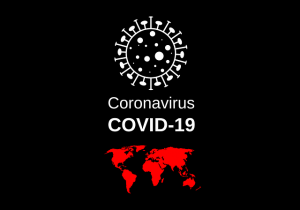
Adequate intakes of selenium, zinc, and vitamin D are essential to ensure resistance to viral infections, to promote strong immune function, and to reduce levels of inflammation. A team of Norwegian, Swedish, and Russian researchers recommends the initiation of adequate supplementation with these micronutrients in high-risk areas and in cases of suspected exposure to SARS-CoV-2 [Alexander 2020].
Selenium Supplementation to Protect Against the Hyper-Inflammation Associated with COVID-19
The team of researchers concluded from its review of the available medical literature that an adequate selenium intake/status can protect against the hyper-inflammation associated with corona viral infections.
Consequently, individuals at high risk who have a selenium status below 100 micrograms per liter should consider daily supplementation at a dose of 100–200 micrograms of selenium per day [Alexander 2020].
Individuals at high risk have the following characteristics:
- Are elderly
- Have a medical condition such as diabetes, hypertension, or heart disease
- Have a lifestyle that involves smoking, alcohol use, and little exercise
- Have elevated pre-infection levels of C-reactive protein, a bio-marker for systemic inflammation
- live or work in a region with high infection rates
- have low plasma/serum concentrations of selenium, vitamin D, and zinc
Bio-Synthesis of Vital Selenoproteins
By taking 100-200 micrograms of a high-selenium yeast supplement daily, these individuals may achieve a relatively rapid bio-synthesis of the vital selenoproteins that represent an adjuvant approach to the prevention of aggressive COVID-19 infections:
- the glutathione peroxidases
- the thioredoxin reductases
- the selenoproteins P, K, and S
Safe Upper Limit for Selenium Intakes from Food and Supplements
The researchers recommend that the long-term combined intake of selenium from food and supplements should not exceed 300 micrograms of selenium per day because higher intakes may be associated with toxicity.

Selenium Supplementation in Combination with Coenzyme Q10
In the Swedish randomized placebo-controlled KiSel-10 study, healthy senior citizens with low selenium status (mean 67 micrograms per liter) were given a combined daily selenium and Coenzyme Q10 supplementation for four years. Daily supplementation with 200 micrograms of selenium and 2 x 100 milligrams of Coenzyme Q10 reduced the levels of non-specific inflammation as measured by plasma levels of C-reactive protein and other biomarkers of inflammation [Alehagen 2015; Alehagen 2019].
Overactive inflammatory responses are typical of severe corona virus infections. The ability of combined selenium and Coenzyme Q10 supplementation to provide significant relief from inflammatory response is noteworthy [Alexander 2020].
Selenium Supplementation in Combination with N-acetylcysteine
The function of the glutathione peroxidase antioxidant seleno-enzymes is dependent upon an adequate supply of the cofactor glutathione. Co-supplementation with N-acetylcysteine, which is essential for making glutathione, may be necessary [Alexander 2020].
Take Home Message: Selenium Supplementation and COVID-19
Intakes of selenium in food vary considerably from region to region in the world. Generally, selenium intakes in much of Europe and the Middle East are considerably lower than selenium intakes in many regions in North America [Stoffaneller & Morse 2015].
Individuals with plasma selenium status below 100 micrograms per liter should consider selenium supplementation at a dose of 100–200 micrograms per day, together with or without cofactors such as Coenzyme Q10 and N-acetylcysteine as a recommended adjuvant approach to prevent infection with the COIVD-19 virus [Alexander 2020].
A Chinese study has shown that patients’ low selenium status was associated with lower cure-rates for COVID-19 infections [Zhang & Rayman 2020].
A German study has shown that higher selenium status and higher selenoprotein P status were associated with higher COVID-19 survival rates [Moghaddam 2020].
Adequate daily selenium intakes from food and supplements are necessary for the bio-synthesis of vital selenoproteins [Alexander 2020].
Sources
Alehagen U, Johansson P, Björnstedt M, Rosén A, Dahlström U. Cardiovascular Mortality and N-terminal-proBNP Reduced after Combined Selenium and Coenzyme Q10 Supplementation: A 5-year Prospective Randomized Double-Blind Placebo-Controlled Trial Among Elderly Swedish Citizens. International Journal of Cardiology, 2013;167(5), 1860-1866.
Alehagen U, Lindahl TL, Aaseth J, Svensson E, Johansson P. Levels of sP-selectin and hs-CRP Decrease with Dietary Intervention with Selenium and Coenzyme Q10 Combined: A Secondary Analysis of a Randomized Clinical Trial. PLoS One. 2015;10(9):e0137680.
Alehagen U, Alexander J, Aaseth J, Larsson A. Decrease in inflammatory biomarker concentration by intervention with selenium and coenzyme Q10: a subanalysis of osteopontin, osteoprotergerin, TNFr1, TNFr2 and TWEAK. J Inflamm (Lond). 2019;16:5.
Alexander J, Tinkov A, Strand TA, Alehagen U, Skalny A, Aaseth J. Early Nutritional Interventions with Zinc, Selenium and Vitamin D for Raising Anti-Viral Resistance Against Progressive COVID-19. Nutrients 2020, 12, 2358.
Moghaddam A, Heller RA, Sun Q, et al. Selenium Deficiency Is Associated with Mortality Risk from COVID-19. Nutrients. 2020;12(7):2098.
Richie JP Jr, Das A, Calcagnotto AM, et al. Comparative effects of two different forms of selenium on oxidative stress biomarkers in healthy men: a randomized clinical trial. Cancer Prev Res (Phila). 2014;7(8):796-804.
Stoffaneller R, Morse NL. A review of dietary selenium intake and selenium status in Europe and the Middle East. Nutrients. 2015;7(3):1494-1537.
Zhang J, Taylor EW, Bennett K, Saad R, Rayman MP. Association between regional selenium status and reported outcome of COVID-19 cases in China. Am J Clin Nutr. 2020;111(6):1297-1299.
The information presented in this review article is not intended as medical advice and should not be construed as such.
15 August 2020
